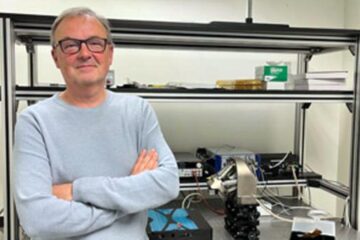New ’self-exploding’ microcapsules could take sting out of drug delivery

Belgian chemists have developed “self-exploding” microcapsules that could one day precisely release drugs and vaccines inside the human body weeks or even months after injection. The study, by researchers at Ghent University and the Universit? Catholique de Louvain, is scheduled to appear in the Jan. 9, 2006, print issue of the American Chemical Society’s journal Biomacromolecules.
Unlike some other microcapsules, which release their drug cargo only when exposed to ultrasonic waves or another external trigger, the new system relies on internal mechanisms to do the same job. Each of the new microparticles features a biodegradable gel core that is surrounded by a lipid membrane. As the gel biodegrades, pressure builds up in the membrane. Eventually the microcapsule ruptures, releasing the medication.
The system, the researchers note, could change how some vaccines are administered. Instead of an initial injection followed by a series of boosters, for instance, certain vaccines could be given in a single shot with the “booster” microcapsules timed to rupture at appropriate intervals.
Media Contact
More Information:
http://www.acs.orgAll latest news from the category: Life Sciences and Chemistry
Articles and reports from the Life Sciences and chemistry area deal with applied and basic research into modern biology, chemistry and human medicine.
Valuable information can be found on a range of life sciences fields including bacteriology, biochemistry, bionics, bioinformatics, biophysics, biotechnology, genetics, geobotany, human biology, marine biology, microbiology, molecular biology, cellular biology, zoology, bioinorganic chemistry, microchemistry and environmental chemistry.
Newest articles

Stretchable quantum dot display
Intrinsically stretchable quantum dot-based light-emitting diodes achieved record-breaking performance. A team of South Korean scientists led by Professor KIM Dae-Hyeong of the Center for Nanoparticle Research within the Institute for…

Internet can achieve quantum speed with light saved as sound
Researchers at the University of Copenhagen’s Niels Bohr Institute have developed a new way to create quantum memory: A small drum can store data sent with light in its sonic…

A chip unique in the world
A team from UPV and iPRONICS has manufactured the first universal, programmable and multifunctional photonic chip on the market. A team from the Photonics Research Laboratory (PRL)-iTEAM of the Universitat…





















